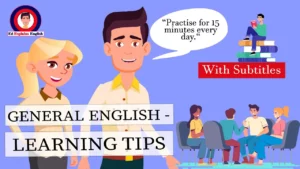I have defined some of the words (underlined) in the blog post, which you can add to your Personal Dictionary. Click on the Excel icon to download the word list to your PC or mobile device, which you can thereafter import into your Personal Dictionary. They are also listed below.
Scroll down to the bottom for links to a crossword and word search using words from this post, as well a YouTube video.
Skills – Things you can do well
Opportunity – A possibility due to a favourable combination of circumstance; chance
Colleagues – People with whom one works in a profession
Mistakes – Judgements that are misguided or wrong
Childhood – The time of person’s life when they are a child
Memory – The power of retaining and recalling past experiences
Legible – Able to be read because of good handwriting
Knowledge – Result of learning and reasoning
Definition – A concise explanation of the meaning of a word
Memorise – Commit to memory; learn by heart
Underestimate – Estimate something to be less important than it really is
Transcript – A reproduction of a written record
Unnatural – Speaking in an artificial way
Commuting – Travelling between one’s home and place of work
Comprehension – The ability to understand the meaning of something
Colloquial – Characteristic of informal spoken language or conversation; slang
Subtitles – Translated captions displayed at the bottom of screen
I am often asked for learning tips by my students, as well as from viewers on my YouTube channel and followers on Instagram.
So, in this post, I will aim to give you some ideas of how you can take your English learning to the next level.
I believe it is important to learn all skills equally. The active skills are speaking and writing; the passive skills are listening and reading. Most schools mainly focus on the passive skills as well as writing, so students don’t get the opportunity to speak as much as they should. Therefore, I encourage students to practice speaking with their colleagues, friends and colleagues, as often as possible, and not to be afraid of making mistakes.
Unfortunately, after we leave childhood, we seem to lose the photographic memory we once had. Therefore, reading all books, whether fiction or non-fiction, blogs, magazines, newspapers, in fact anything legible, is a great way to learn new vocabulary, as well as deepening your knowledge of sentence structure. If you have an e-reader, you can click on the words and get a definition or sometimes a translation in your chosen language. Some devices automatically save those words, so that you have them in a list. Keeping wordlists in either electronic or written form, is a great way to memorise new words. Use the words in real examples, so that you can best remember the words. I will do a separate blog on mind mapping skills to learn languages in a separate post at a later date, so look out for that, or better still, subscribe to have these blogs sent directly to you by e-mail.
Listening comprehension cannot be underestimated either. Podcasts are a great and free way to learn authentic English. One which I often listen to with my students, is the BBC’s 6-minute English. They have a full range of podcasts for all learning levels, often with a transcript, just in case you have problems understanding everything. Often students complain about the speed at which native speakers talk, but this is sometimes a perception, because it sounds unnatural. Believe me, the more you train it, the easier it becomes. Moreover, you can listen while commuting or even cleaning your teeth.
Watching films and series in the original language on television or on one of the many streaming platforms is another great way to practise your listening comprehension. The language used, although often colloquial, or in fact grammatically not perfect, are often as authentic as the language you’d hear in the UK or US. If you have problems understanding, you can also use subtitles in English or your own language to help.
Whichever skill you choose to practise, just bear in mind that learning English for fifteen minutes a day, is much better than 90 minutes one day a week.
To test your knowledge, why not do a crossword puzzle, using words from this text?
Click here for instructions on how to play.
To test your knowledge, why not do a word search puzzle, using words from this text?
Click here for instructions on how to play.
To avoid spam, all comments will be held for moderation and posted once checked. All comments whether positive or negative will be published.



